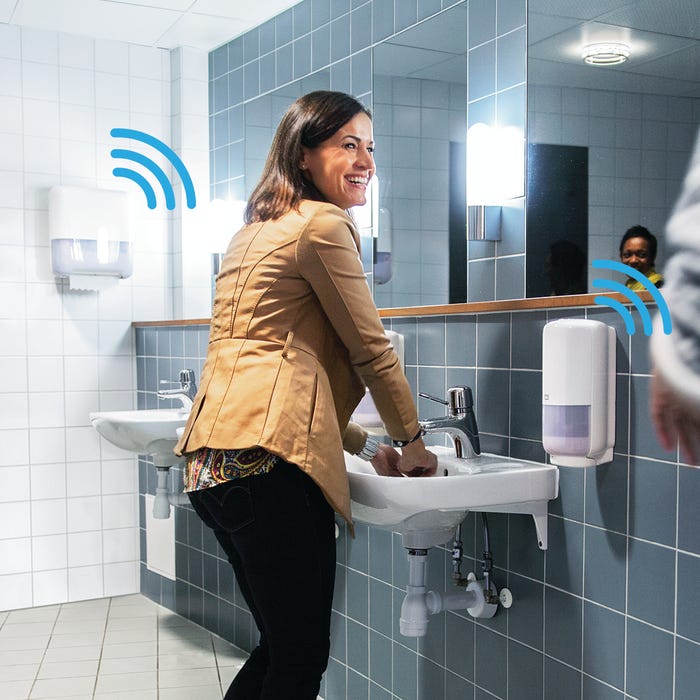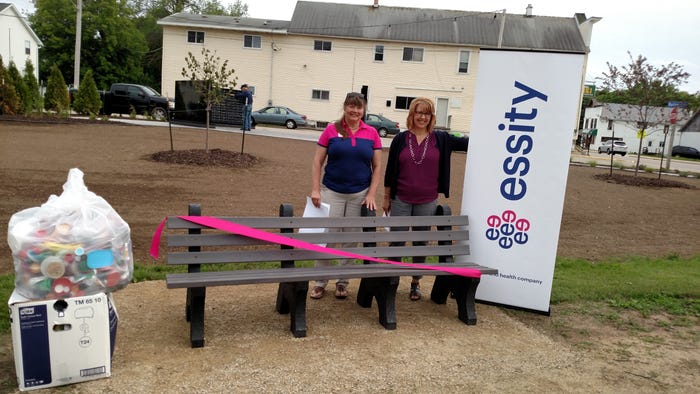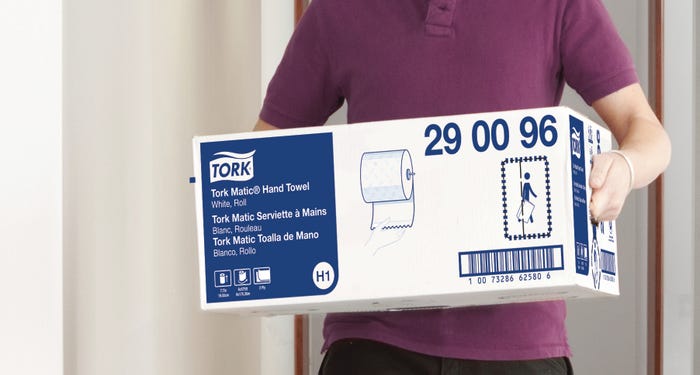Tork Works to Reduce Paper Waste While Promoting Health, Wellbeing
The global leader in professional hygiene is taking its sustainability efforts to another level via collaboration and innovation.

Tork, a brand of Essity and a global leader in professional hygiene, is committed to reducing paper waste and contamination, one of the biggest problems the waste and recycling industry is faced with on a daily basis. For years, the problem has grown, and now with China’s waste import ban and contamination standard in effect, companies within the waste and recycling industry and other industries are seriously making the effort to combat contamination, recycle and compost more materials and develop more sustainable, compostable or recyclable products.
Tork is a brand of products like napkins, paper towels, bath tissue and washroom accessories, most of which are certified compostable and made with recycled fiber.
“In North America, Essity uses nearly one million tons of recycled fiber in its Tork products each year,” says Carrie Schuster, marketing manager, sustainability and hygiene, at Essity. “We have a closed loop recycling program where we have four mills across the country that we work in close vicinity to in order to reduce transportation and provide clean, local fiber to be put back into our fiber stream to produce Tork paper products.”
The brand also creates innovative dispensing systems that help reduce usage and waste while offering hands-free hygiene solutions to reduce contamination as well. The Tork Matic paper towel dispenser, for example, dispenses one paper towel at a time, allowing the whole roll to be used and avoiding the issue of people taking large numbers of paper towels from dispensers in public areas home for their own personal use.
Recently, the brand came out with smart dispensers, which allow customers to save both time and money.

“We are the first brand to come out with smart dispensers, and they really help staff in a variety of environments focus on what needs to be cleaned instead of running around and checking dispensers to identify what needs to be cleaned,” says Schuster. “At the Philadelphia Eagles stadium, for example, the cleaners have access to an intuitive dashboard that reports supply levels like a stoplight system, giving red, yellow and green indicators. Green means the dispenser is full, yellow means it’s beginning to run low and red means the dispenser is critically low and needs attention. This system easily alerts staff on which bathrooms need to be attended to, eliminating the guessing game and reducing the complaints from stadium visitors about paper towels and bath tissue not being available.”
Companies, universities, healthcare facilities and others strive to reduce their paper usage and contamination, and Essity believes the key to achieving that goal, and other waste reduction goals, is collaboration. Essity has a wide variety of partners, all of which help serve a sustainable purpose. One of its partners helped find a solution for Essity’s Wisconsin office plastic bottle caps, which couldn’t be recycled at the local recycling facility. Through the partnership, Essity has used its bottle caps to help create one-of-a-kind park benches and picnic tables for use in local communities.

Essity also works with shredders and recyclers to keep its paper separate from other recyclable and waste material, ensuring that the clean material is recycled instead of being part of a single stream recycling process and potentially being sent to landfill due to contamination.
“There is a lot of value and purpose behind repurposing fiber, so we are doing everything we can to capture clean fiber and put it back into the fiber stream to be used in our products,” says Schuster.
In addition to making sustainable products and collaborating with others on various waste reduction efforts, the brand has a number of in-house sustainability and safety programs and procedures. Tork Easy Handling, for example, makes products easy to carry, open and handle, eliminating the need for boxes to be stacked on top of each other or sharp objects to be used to open packages. The brand is transparent about these efforts, and Essity releases an annual sustainability report highlighting how sustainability is engrained in everything that the company does.

For 2018, Essity has developed a very firm sustainability strategy that focuses on three main pillars: wellbeing, circularity and more for less. Wellbeing is about keeping people healthy, circularity is about having nothing go to waste and more for less is about Essity’s commitment to sustainable consumption.
“We’re really excited about this year’s focuses and strategies and about collaborating with new partners,” says Schuster. “We’re dedicated to being a leader in the circular economy movement, and we’re ready to take further steps toward creating a more sustainable world.”
About the Author
You May Also Like




